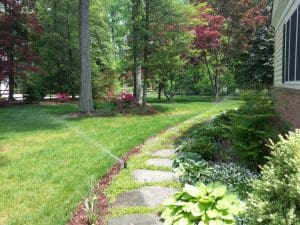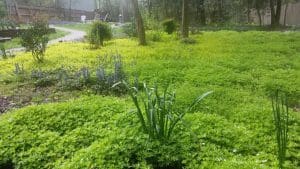
Not every person is going to have a green thumb, and when problems pop up in your garden, you might not know the best way to handle the issue. We’re here to let you know how you can handle some of the most common gardening problems people encounter. Learn about various gardening problems and the ways for you to resolve them.
Plants Get Excess Water
When plants get too much water, you may notice your plants have stopped growing or begun to yellow. If this happens to your plants, do less watering during your gardening routine or mix in some more sand to help with drainage.
Garden Has Too Many Weeds
Weeds are a constant problem for anyone trying to maintain their landscape. When you see weeds popping up, use herbicide to take care of them. Herbicide should be applied during the spring and fall. This addresses seasonal weeds. If the problem is too severe, consider hiring a landscaping company to tackle the issue for you.
Flowers Aren’t Growing
Another common gardening problem is when your flowers don’t grow as you planned. Some people aren’t aware that perennials and annuals don’t thrive in all zones. That’s why you need to make sure that whichever plants you are using go into the appropriate planting zone to grow. Sometimes, this means bringing your plants indoors if it provides them with optimal growing conditions.
Invasive Plants
You don’t want plants taking over your entire yard or garden. To avoid this gardening problem, move these invasive plants away from the rest of your garden. Another solution would be to place those plants into containers and let them grow in isolation.
Dead Patches On Your Lawn
Dead patches can be found on your lawn for many reasons, including pests and disease. The best way to address this issue is to get professional help. Professionals will have the tools to get your lawn looking like new, and they can offer you advice on how to maintain your lawn down the road.
Plants Are Thirsty
Dehydrated plants are some of the most common gardening issues people have. While this problem can often be alleviated by simply giving them more water, there are other measures you can take. A healthy layer of mulch goes a long way towards caring for your flowers. For flowers, 1 to 2 inches of mulch is all you need. Trees and shrubs don’t need much more, only between 2 and 4 inches. Don’t go over this limit because it can result in your mulch siphoning off the water from your plants.
The Landscape Design Center Is Here To Serve You
At the Landscape Design Center, the client is always our number one priority. We are committed to creating, improving, and maintaining the environment – an environment in which our clients live, work, and play. We work with a variety of electric companies in the area to make sure your lights are addressed properly. Be sure to follow us on Facebook, Twitter, Linkedin, Pinterest, and YouTube to stay up-to-date on all of our latest news.



